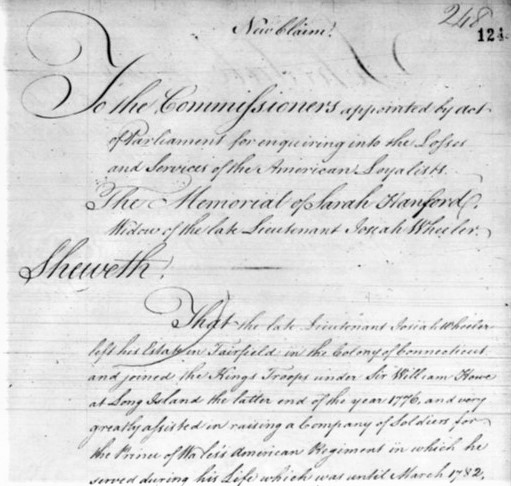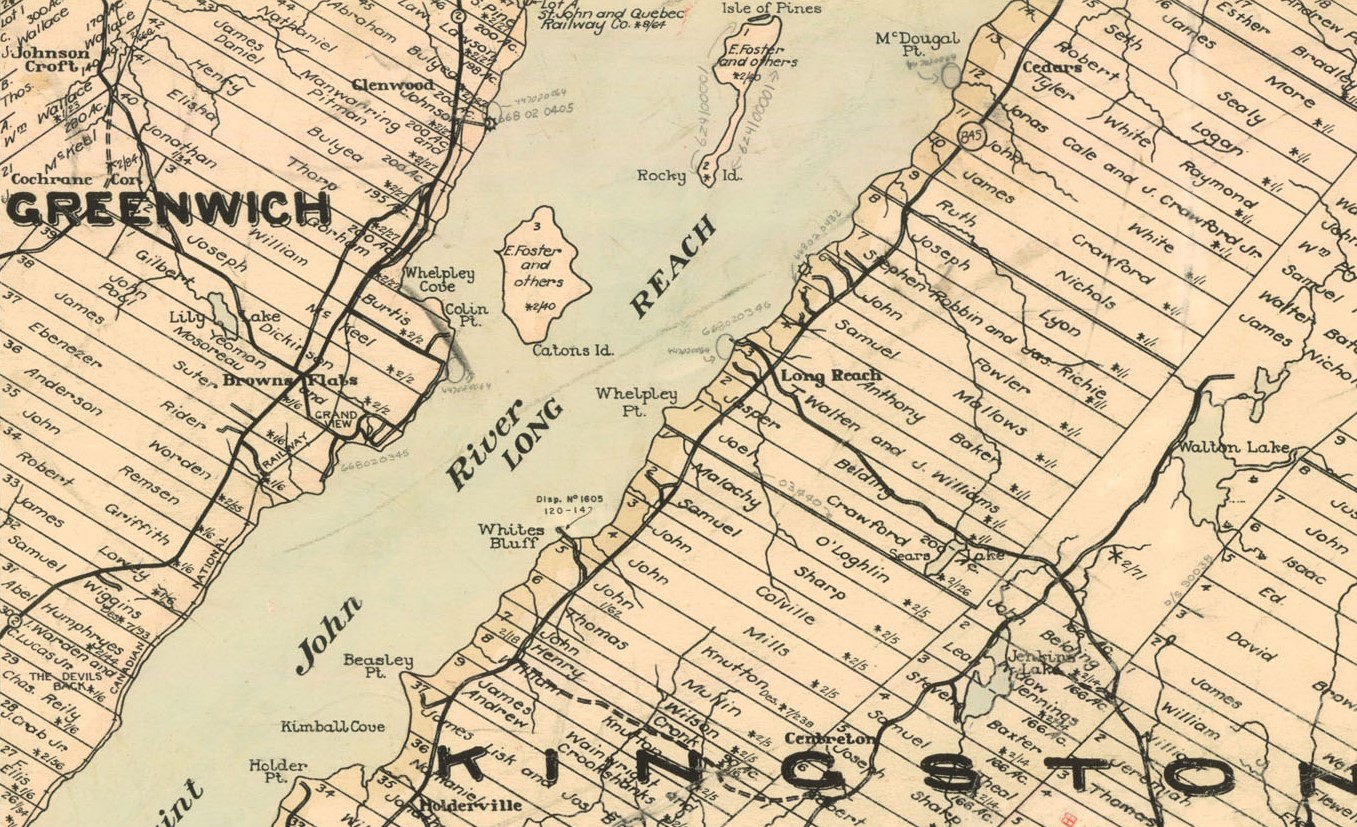- Submitted on
- 2 comments
Do you know your loyalist ABCs? This post will familiarize you with some important terms for loyalist history and research!
American Loyalist Claims Commission
The Commission created to deal with the claims for compensation to restore property lost through loyalty to the British Crown during the American Revolution with an original deadline for submissions of spring 1784, which was later extended for those who were unable to submit claims earlier. The records of the claims made by American loyalists are found in the British Audit Office records 12 (Series I) and 13 (Series II) which consist of the evidence of witnesses, reports and other communicated documents, the examinations and decisions of the commissioners, lists of claims, etc.. (See The National Archives catalogue record for more details).

(AO 12, volume 1, p. 248, originals, The National Archives, UK)
Book of Negroes
Document produced in 1783 at New York which nominally recorded Black Loyalists, both free and enslaved, who intended to emigrate. Sometimes called the “Inspection Roll of Negroes,” it was produced on the order of Sir Guy Carleton to deal with George Washington’s demands in preparation for the possibility of patriot slave owners asking for compensation for losses for what they saw as their property. See “The Importance of the Book of Negroes” for more.
Committee of Safety
Local organizations formed by patriots during the American Revolution which evolved from committees of correspondence and committees of inspection to become the executive bodies of a “shadow government,” eventually assuming full governmental powers. Many loyalists suffered abuses under the power of local Committees of Safety.
deposition
Testimony made under oath and recorded for legal purposes; depositions were often part of claims submitted by loyalists for compensation.
escheat
Upon receiving a land grant, a grantee pledged to cultivate and improve the land. In failing to do so, the land could be taken and re-granted to another, or escheated. This occurred with the original or additional grants of many loyalists who then had to relocate due to the difficulty in accessing and farming.

Freemason
A member of a (now international) society established for mutual help and fellowship, whose traditions and rituals make symbolic use of or reference to the tools of medieval stonemasons. Many loyalists were members of both the Modern and Ancient Orders and founded new lodges in the Maritime Provinces.
grantee
The person to whom a grant or conveyance is made; used in the sense of a person who has been granted an allotment of land. The granting of land was an essential part of the process of resettlement for loyalists following the American Revolution.
half pay
Being paid half the usual or full wages or salary; a reduced allowance to an officer in the army or navy when not in actual service, or after retirement at a prescribed time. Many loyalists who had been officers in provincial regiments, or were originally members of the British military in some cases, received half pay following the American Revolution.
intestate
Not having made a will before one dies. This was the case with loyalists who passed unexpectedly. Probate records, or the official proving of a will and the associated legal process, are often key documents in loyalist research. See the Provincial Archives of New Brunswick database Wallace Hale’s Early New Brunswick Probate, 1785-1825 for example of probate documents.
Justice of the Peace
Gentleman judge, also termed “Esquire Justice” or “Esquire Councilors”; a magistrate appointed to hear minor cases, perform marriages, grant licenses, etc. Abbreviated “JP”. Many loyalists became justices of the peace in their new communities after resettlement.

King's Printer
A bureau of the national, state, or provincial government responsible for producing official documents issued by the King or Queen-in-Council, ministers of the Crown, or other departments. The position is defined by letters patent under the royal prerogative in various Commonwealth realms. King’s Printers were established in the British colonies which became the Maritimes Provinces around the time of the arrival of the loyalists.

land petition
The process and documents by which individuals requested ownership of land from the British Crown. If successful, the granted land became registered in their name. Some loyalists did proceed to cultivate unoccupied or escheated land plots before confirming that the land was lawfully registered to them. In which case, if their petition was denied and the land re-granted to another loyalist; their labour and cultivation efforts were forfeit. Land petitions are excellent documents to use for loyalist research because of the personal details many included.
Watch for M to Z in our next post!
Leah Grandy holds a PhD in History and works as a Special Collections Assistant at UNB Libraries.
Sources
The Oxford English Dictionary online is a great resource for historical terms.
Philip R.N. Katcher, King George’s Army 1775-1783: A handbook of British, American and German regiments, (Reading: Osprey Pub., 1973).

Comments Add comment
Loyalist Terms A-Z Loyalist Claims
Loyalist Claims Commission
Thank you for your comments. We have amended the entry to clairfy the definition, which is certainly an important one for loyalist research. The original information came from the description by The National Archives, UK, who hold the original documents.
Add new comment Comments